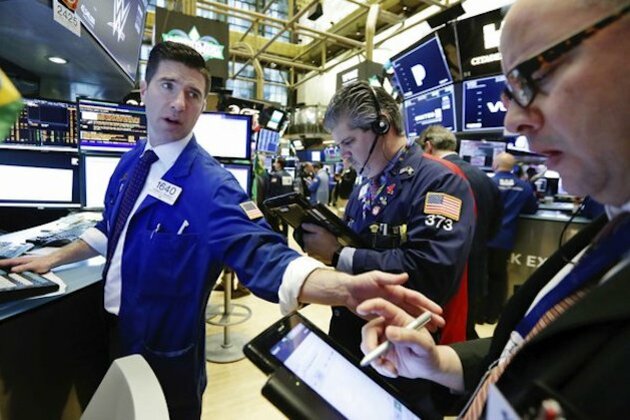The Impact of Artificial Intelligence on Business Operations and Strategy
7Newswire
28 Oct 2023, 06:35 GMT+10

To understand AI's potential, it's essential first to define it. Artificial intelligence is a digital system that replicates specific facets of human intellect. Rather than just executing predefined tasks, AI uses intelligent methods and approaches, simulating human-like problem-solving abilities.
1. Evolving with Machine Learning
Machine learning, a significant component of AI, can adapt and learn from the data provided, even post-deployment. This adaptability benefits businesses integrating ML, decreasing upkeep and updating expenses. Furthermore, ML's continuous evolution adjusts solutions based on the problem's specifics.
AI's potential in business settings is vast. Clean data amplifies AI's efficiency, making it particularly effective in businesses with structured data processes and vast datasets. Even though data gathering and storage are standard practices today, industries like finance, healthcare, and logistics, with extensive data archives, will gain the most from AI implementations.
Regardless of the specific AI deployment, they share common features. They can process vast data volumes, refining solutions based on this data, making them enticing for companies with extensive data archives. Enterprises can train AIs using this data, generating customized solutions for their unique challenges.
With the ability to be adjusted and enhanced effortlessly and the adaptability to a company's data-driven needs, AI becomes an obvious choice for businesses. The constant evolution of machine learning models, when fed more data, adds to AI's allure for commercial entities.
2. Cost Efficiency
A standout feature of AI is its speed and cost-effectiveness compared to human resources. This efficiency appeals to firms considering AI, as the potential return on investment significantly outweighs the initial costs.
The proliferation of cloud computing and diverse cloud service providers accelerates AI adoption. Cloud-based AI solutions are not only more cost-effective than traditional setups but also offer user-friendly integrations. The scalable pricing models further reduce initial investments, making AI experimentation more accessible.
3. The Power of Prediction
Predictive analytics, an AI subset, is versatile across various sectors. By employing ML models, the software can discern connections between diverse variables and then forecast future correlations.
Consider a supply chain instance: a predictive tool trained using shipment data - encompassing quantity, supply, and demand - can project future shipping needs based on historical supply-demand relationships.
Such analytics can significantly streamline processes, leading to cost reductions, notably in retail and logistics. Essentially, predictive analytics showcases AI's aptitude for recognizing patterns.
By leveraging statistical and computational techniques, ML tools can identify trends in data, spanning beyond traditional datasets to include image and video analysis. Such capabilities make it valuable in sectors like healthcare, defense, and customer support.
Now, let's explore sectors AI and ML are set to revolutionize.
Industries That Will Get Disrupted by AI
The last five years have seen AI permeate various sectors. Given the rise of machine and deep learning algorithms, numerous traditional industries face disruption. Here's a snapshot of the top industries poised for significant AI-induced change:
1. Healthcare
The healthcare domain offers a plethora of opportunities for AI. The sector's emphasis on accurate patient data collection makes it ripe for AI integration. Predictive healthcare, empowered by AI, facilitates proactive medical interventions, starkly contrasting to the current reactive model. Moreover, AI-enhanced image analysis speeds up diagnostics, and health-oriented chatbots are revolutionizing preliminary patient interactions.
2. Customer Interaction & Experience
AI is already redefining customer service. Chatbots, powered by Natural Language Processing (NLP), assist and sometimes even replace human agents. These bots, due to their evolving nature, provide instant assistance, minimizing customer wait times and enhancing the overall experience. Recommendation engines, like those on Amazon and Netflix, further personalize user experiences, cementing customer loyalty.
3. Banking and Financial Services
The financial realm, known for its data-driven operations, is a natural fit for AI. Beyond fraud detection, AI streamlines tedious tasks like documentation. Predictive analytics helps banks identify and retain high-value customers, while credit history analysis assists in gauging loan default probabilities.
4. Logistics
AI is set to revolutionize logistics, from inventory management to route optimization. For instance, global beverage distributor Ab InBev has leveraged AI for optimal inventory management and demand forecasting, reducing overheads. Additionally, AI aids in swift document processing at customs, accelerating global trade.
5. Retail
The retail industry is evolving with AI analytics, optimizing inventory, and enhancing in-store experiences. Innovations like Amazon Go, which blends ML, image recognition, and automation, present a glimpse of the future of shopping. Additionally, online retail giants use AI to analyze customer behaviors, optimize product recommendations, and boost sales.
6. Cybersecurity Enhancements
AI's role in cybersecurity extends to handling vast databases that many cybersecurity firms use to scan for potential virus intrusions. Antivirus firms are integrating the approach to pave a more proactive path against cyber threats.
Given the substantial data on various cyber-attacks, malware, and potential attack routes, AI can be taught to demonstrate logical processes. Companies can then utilize AI mechanisms that consistently oversee their network, flagging unusual behavior. When any anomaly arises, the AI can either rectify the security gap or alert its human counterparts, reducing the resolution time and diminishing the risk of data loss.
Moreover, AI's continuous monitoring capabilities can detect long-term cyberattacks against significant entities like multinational corporations at an earlier stage. This early detection is crucial for damage control and safeguarding the company's financial assets and data.
7. Evolving Transportation
One of the most transformative applications of AI is in autonomous driving. Thanks to innovators like Tesla, self-driving cars have become increasingly familiar. Companies like Uber are exploring autonomous transportation solutions, while tech behemoths like Google are diving into this arena.
Furthermore, the realm of cargo transportation can greatly benefit from autonomous vehicles. AI-driven trucks promise expedited deliveries and cost savings as they don't need breaks and are cheaper than employing human drivers. Tesla's semi-vehicle is a case in point. AI algorithms in such vehicles, through image processing, can predict possible collisions based on vehicle velocity and the relative positions of other vehicles.
The advancement of this technology will soon allow humans to oversee AI systems rather than control them directly, diminishing the burden on human drivers and yielding economic advantages for businesses.
8. Revolutionizing Marketing
AI will catalyze the marketing domain primarily through personalized content delivery and optimized targeting. There are emerging benefits, including smart automation and AI-powered tools, gaining traction.
By evaluating customer choices, AI marketing tools can ascertain the most impactful communication strategies for a brand. For instance, after purchasing shoes, the AI system could suggest related items to the customer, enhancing the chances of additional sales.
With the proliferation of neural network-based targeted advertising, companies can engage customers more effectively. Giants like Google and Facebook have already integrated AI into their advertising mechanisms. Moreover, recommendation systems can be tailored for individualized advertising.
9. Defense Dynamics
Although the evolution of autonomous weaponry is under strict regulation, the enormous investments predict growth. Ethical considerations about autonomous weaponry remain, but they represent the upcoming arms era.
Beyond weaponry, image and video analysis can be employed for large-scale surveillance. Using extensive biometric and facial data, facial recognition techniques can identify individuals in surveillance frameworks, enhancing national security while minimizing human intervention.
However, ethical debates arise as such technology might be exploited for authoritative governance. Notably, China's use of comprehensive facial recognition for a social credit scheme reflects these concerns.
10. Lifestyle Transformation
AI promises substantial lifestyle shifts, including smart homes and seamless integration. Devices like Google Home and Amazon Alexa have gained worldwide popularity, and chatbots might soon become ubiquitous across sectors.
These gadgets have already gained traction among consumers. Coupled with the Internet of Things, predictive algorithms can offer an automated lifestyle. Consider a refrigerator using image recognition to detect depleting supplies and subsequently placing an order, which a robotic assistant delivers.
Such conveniences will soon become commonplace, and the profound influence of AI will redefine life as we perceive it.
Expert Opinions:
Jack, CEO of Pcbinsider, asserts that while AI's disruptive tales initially revolved around fintech startups or replacing truck drivers with AI-driven vehicles, the scenario changed drastically on September 14, 2019. On this date, 19 AI-guided drones significantly hampered Saudi Arabia's oil output, forever altering the national security landscape.
He further comments on the resilience of highly regulated industries against AI's disruptive wave. Emphasizing the necessity for explainable AI, he mentions that while financial sectors utilize AI, they lean more towards enhancing human decisions than replacing them.
Brandon Green, Host of the Lets Go Brandon Green Podcast, believes transportation and logistics are set for major upheavals. He also discusses the industries that might resist AI's impact, emphasizing personal service and creativity's value.
Ben Gold, the owner of Recommended Home Buyers, delves deeper into the nuances of AI before discussing the industries ripe for disruption. He contends that industries heavily reliant on physical activity, like mining or steel production, would be challenging to disrupt.
A Look AheadUndoubtedly, artificial intelligence is among the defining technologies of this era. Its profound impact on various sectors remains a topic of interest. Currently, at the AI adoption curve's inception, the profound implications will soon become evident.
The present prowess of AI signifies that its ultimate potential and societal repercussions remain a vast, uncharted domain. From day-to-day lifestyle modifications to subtle changes in foundational societal structures, AI is reshaping every industry's core functionalities. Share
Share
 Tweet
Tweet
 Share
Share
 Flip
Flip
 Email
Email
Watch latest videos
Subscribe and Follow
Get a daily dose of Hawaii Telegraph news through our daily email, its complimentary and keeps you fully up to date with world and business news as well.
News RELEASES
Publish news of your business, community or sports group, personnel appointments, major event and more by submitting a news release to Hawaii Telegraph.
More InformationInternational
SectionTrump gives himself a fortnight to decide on joining Netanyahu's war
WASHINGTON, DC - In a bid to defuse speculation, U.S. President Donald Trump says he will make his decision on whether to have the...
U.S. abandons inter-agency effort to pressure Moscow on Ukraine
WASHINGTON, D.C.: A quiet shift inside the Trump administration has stalled a key diplomatic initiative aimed at pushing Russia toward...
Investigators examining Black Boxes recovered from Air India Boeing
NEW DELHI, India: Indian investigators are examining the black boxes from a Boeing 787 Dreamliner to determine the cause of a catastrophic...
New banquet rules in China after deaths, part of Xi’s crackdown
BEIJING, China: Chinese civil servants are now facing stricter rules on dining together, with some local authorities limiting group...
Tehran seeks ceasefire via Gulf allies, offers nuclear flexibility
DUBAI, U.A.E.: As violence escalates between Iran and Israel, Tehran is turning to its Gulf neighbors to help broker a ceasefire —...
Blaise Metreweli becomes first woman to head MI6
LONDON, U.K.: On June 15, Britain named Blaise Metreweli as the first woman to lead the Secret Intelligence Service, commonly known...
Business
SectionU.S. on edge as Israel-Iran conflict escalates
NEW YORK, New York - U.S. stocks made only minor moves in both directions,Thursday, as investors fretted about the Israel-Iran conflict...
Luxury giant Kering bets on outsider de Meo to lead turnaround
PARIS, France: Luxury group Kering's decision to tap Luca de Meo as its next chief is being seen as a daring but necessary attempt...
Trump family enters telecom with branded phone, mobile service
NEW YORK CITY, New York: The Trump family has unveiled a new venture in the telecom sector — and it's drawing as much scrutiny as it...
Starmer: US-UK trade deal to be finalized 'very soon.'
KANANASKIS, Alberta: With key tariff deadlines approaching, British Prime Minister Keir Starmer said this week that finalizing the...
Aircraft orders expected as Paris airshow opens, despite recent crises
PARIS, France: The Paris Airshow kicked off on June 16, attracting attention with expected aircraft orders, but overshadowed by the...
U.S. stock markets divided as Fed leaves interest rates unchanged
NEW YORK, New York - U.S. stocks were largely range-bound Wednesday after the Federal Reserve decided to maintain the target range...













